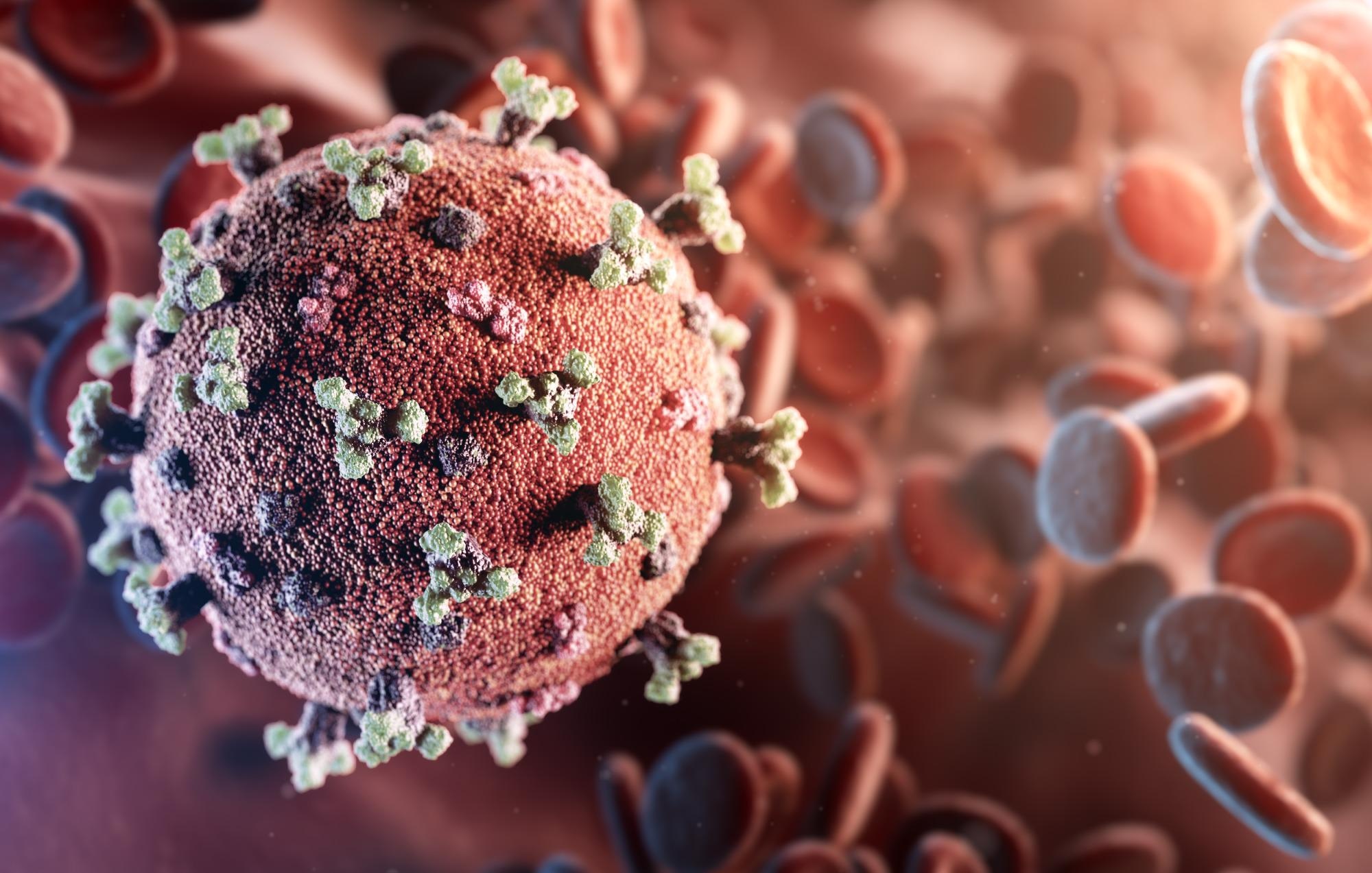Severe acute respiratory syndrome coronavirus 2 (SARS-CoV-2) that has brought about the coronavirus disease 2019 (COVID-19) pandemic is a single-stranded positive-sense RNA virus that leads to respiratory, gastrointestinal, as well as central nervous system infections in humans.
The infection is mediated by the interaction of a membrane-bound human angiotensin-converting enzyme 2 (ACE2) with the viral spike protein and further aided by host proteases TMPRSS2, TMPRSS4, and CatB/L. Expression of ACE2 is reported in the brush border of enterocytes in the gut, which is also the site for SARS-CoV-2-associated inflammation.
The post-acute COVID-19 syndrome, which is characterized by persistent or prolonged symptoms for more than four weeks following infection, was initially dismissed by many. However, it is now recognized as a multiorgan disease that adds to the growing health care challenge. The symptoms associated with post-acute COVID-19 involve severe fatigue, cognitive dysfunction, or pain. Severe acute COVID-19 and poor baseline health status can often lead to post-acute COVID-19, although sometimes mild infection can also cause post-acute COVID-19.
The pathophysiologic mechanisms of post-acute COVID-19 are not clearly defined like acute COVID-19. Additionally, post-acute COVID-19 was reported to be associated with hyperactivated T and B cells, persistently activated innate immune cells, and increased proinflammatory cytokine expression. However, the cause of such immune perturbations was unknown.
A new study published in the journal Gastroenterology used upper and lower gastrointestinal endoscopy to assess whether gut antigen persistence leads to post-acute COVID-19 in patients with or without post-acute COVID-19 symptoms.
 Study: Post-acute COVID-19 is characterized by gut viral antigen persistence in inflammatory bowel diseases. Image Credit: creativeneko / Shutterstock
Study: Post-acute COVID-19 is characterized by gut viral antigen persistence in inflammatory bowel diseases. Image Credit: creativeneko / Shutterstock
About the study
The study included 46 inflammatory bowel disease (IBD) patients with PCR-confirmed SARS-CoV-2 infection. The gut tissue was obtained by upper and lower endoscopy 94-257 days post-infection. In addition, all participants had to undergo a laboratory test and quantification of fecal calprotectin at endoscopy.
Biopsy samples obtained from the terminal ileum, duodenum, and colon were used to determine the persistence of SARS-CoV-2 RNA in the gastrointestinal tract, followed by immunofluorescence. Thereafter, Vero cells overexpressing ACE-2 and TMPRSS2 were infected with the virus. Quantification of SARS-CoV-2 spike and nucleocapsid protein-specific immunoglobulins was carried out by ELISA.
Finally, assessment of SARS-CoV-2 specific T cells directed against the spike and nucleocapsid was done by interferon-gamma release assays (IGRA) and further confirmed by intracellular flow cytometry.
Study findings
The results indicated that 91 percent of the participants experienced mild acute COVID-19, while 45 percent reported at least one post-acute COVID-19 symptom. Most of the patients with IBD were reported to be in remission by endoscopy. A positive qPCR signal from at least one gut segment was identified in 70 percent of the patients. The presence of viral RNA was detected in 31 percent of the biopsies with RNA-dependent RNA polymerase (RdRP) expression in 13.6 percent of the biopsies, spike protein in 11.4 percent, nucleocapsid in 10.6 percent, and the envelope protein in 6.1 percent.
Immunoreactivity was detected in 52 percent of patients against the viral nucleocapsid phosphoprotein in intestinal epithelial cells as well as immune cells in the lamina propria of the small and large intestine. In addition, patients with positive nucleocapsid as well as RdRP, spike, or envelope qPCR signal were also found to display nucleocapsid immunoreactivity.
The results also reported that SARS-CoV-2 replication did not occur in the gut mucosa, although the persistence of that SARS-CoV-2 viral antigen occurs even months after acute COVID-19. Furthermore, only those IBD patients who displayed viral RNA expression in the gut were found to display post-acute COVID-19 symptoms, which were further confirmed by assessment of nucleocapsid immunoreactivity.
Additionally, the occurrence of viral antigen persistence in patients took place with and without immunosuppressive therapy and was not related to gut inflammation. A comparable IFN-γ release was reported in patients with and without antigen persistence upon SARS-CoV-2 nucleocapsid exposure. Also, evidence of anti-nucleocapsid IgG antibodies was lacking in patients with antigen persistence. Moreover, anti-TNF immunosuppressive therapy was used against impaired inflammatory T cell responses following stimulation with nucleocapsid peptide.
Therefore, the current study demonstrated that the persistence of SARS-CoV-2 antigen in the gut could be a basis for immune perturbation associated with post-acute COVID-19. However, further clinical trials are required to understand if viral antigen persistence leads to the pathophysiology of post-acute COVID-19.
Limitations
The study has certain limitations. First, the study lacked a replication cohort. Second, the study was restricted to only IBD patients. Third, the study could not directly prove if the SARS-CoV-2 antigen persistence affects host immune responses.